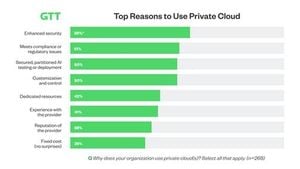Berlin is bracing for another major disruption to its public transport system as the Verdi union has called for a full-day warning strike at the Berliner Verkehrsbetriebe (BVG) slated for February 10, 2025. The strike follows the rejection of the BVG’s wage proposal made on January 31, triggering significant outrage among the workforces.
The Verdi union, which has been engaged in protracted wage negotiations with BVG, has stated clearly: the offer created by management simply did not meet the needs of employees. Janine Köhler, who serves on the Verdi tariff commission and chairs the BVG staff council, expressed frustration with the BVG's representations. “The executive board’s claims of offering over 15% wage hikes are misleading. They fail to account for soaring inflation, which our members have felt deeply,” she asserted.
Indeed, the BVG's actual proposal included staggered wage increases of 2.5%, 4.5%, and 7% over three years, well below inflation rates which, since 2021, have risen by about 19%. The stark reality for many employees, particularly those working as drivers, would still leave them facing real wage losses of approximately 7.5% compared to 2021 levels—effectively costing them around 190 euros less each month than they earned four years ago.
For commuters, the warning strike is expected to cause major inconveniences, echoing previous disruptions experienced at the end of January when the city’s buses, trams, and subways were halted for similar reasons. The upcoming strike will start at 3:00 AM and will last until the following morning, effectively grounding Berlin's main transit services.
Despite the disruption, the S-Bahn will not be affected, being managed by Deutsche Bahn, and several regional trains and services provided by other companies are also expected to operate normally. Commuters are being encouraged to seek alternative transport methods, including car-sharing services and cycling, as the BVG plans to inform the public shortly about the strike’s precise impact.
During the negotiations, Verdi has made notable demands including 750 euros extra per month for all employees, significant additional allowances for on-call and shift work, and the reintroduction of a 13th month salary, referred to as holiday pay. Yet the BVG has maintained these requests are unfeasible financially, reiteratively expressing their position against the planned warning strike, claiming it escalates tensions unnecessarily without addressing the constructive engagement presented during negotiations.
The BVG argues its offer, which if accepted would see increases averaging 6.9% retroactive from January 1, 2025, still remains as part of four years of planned future increases, projected biannually at 2.5%. This could potentially yield pay raises for drivers of up to 8.5% but is seen by Verdi as inadequate, still leading to losses relative to inflation.
Critics view this labor dispute as emblematic of broader struggles between corporate fiscal strategies and workers' fair compensation, questioning the sustainability of maintaining service standards under the current spending constraints imposed by the BVG. Both parties recognize the need for resolution, with the next negotiation session scheduled for February 11, immediately following the warning strike. The BVG has appealed to Verdi to engage meaningfully with their proposal, denouncing the strike as detrimental to passengers who rely on their services.
With the BVG describing the Verdi framing of wage increases as incorrect, the war of words continues, alongside the dispute. Hence, the challenge posed by this warning strike transcends just the transport sector, tapping deeply at the undercurrents of labor relations and economic pressures faced by workers across the nation.
Looking forward, the urgency to effectively negotiate cannot be overstated as this strike may just be one element of an increasingly exploited workforce demanding respect and fair treatment from large corporations. The outcome may not only affect local commuters but could reverberate through all levels of public service and their funding mechanisms going forward.



